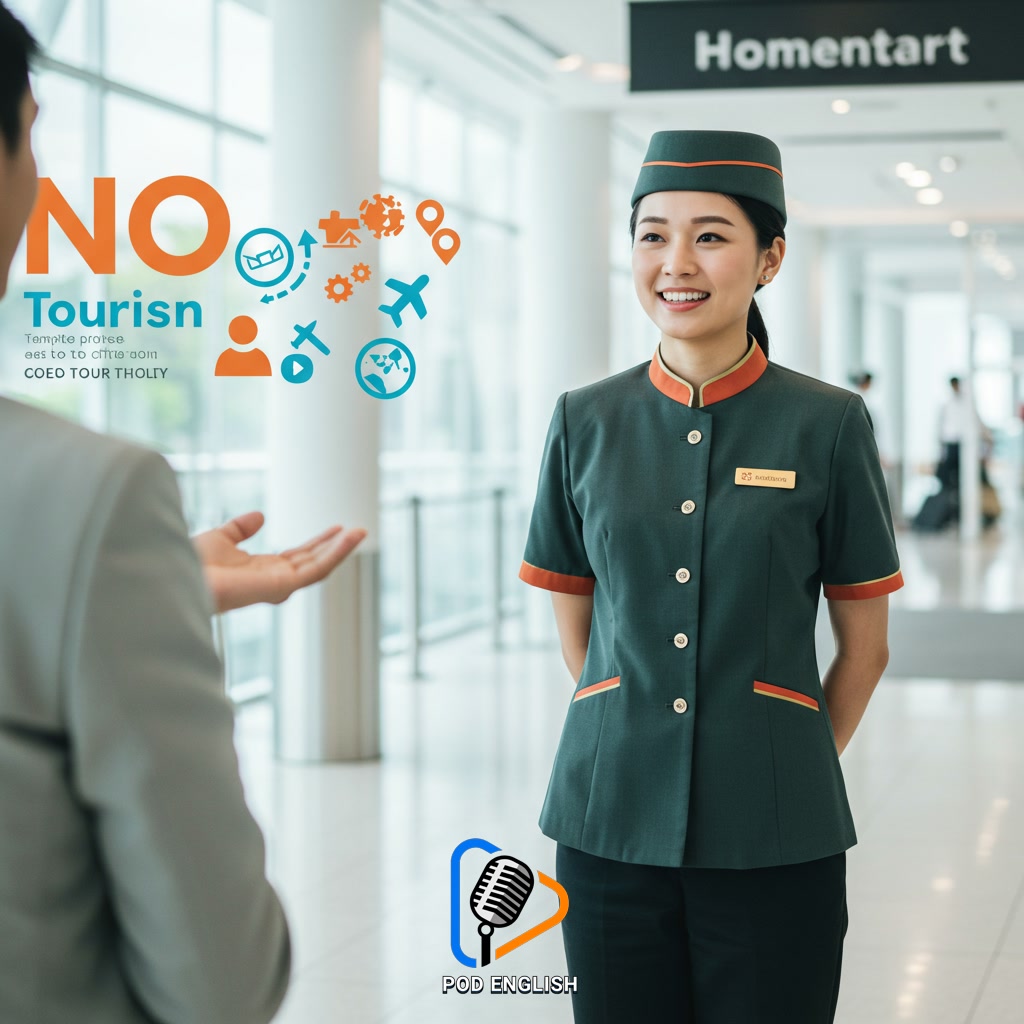Learn English
Unlock Your Tourism Career with English Skills

Gaining proficiency in English is key to advancing your career in the tourism sector. Strong communication abilities in English open doors to diverse opportunities and international roles within the industry. Focusing on improving your English skills is a strategic step towards achieving professional success and connecting with a global clientele. This focus on learning English directly impacts your ability to provide excellent service and stand out in the competitive tourism market.
Table of Contents
- Section 1: Why English is Essential for a Tourism Career
- Section 2: Key English Skills Needed in Tourism Roles
- Section 3: Effective Strategies for Learning English for Tourism
- Section 4: How English Proficiency Boosts Your Career Opportunities
- Section 5: Leveraging Your English Skills for Career Advancement in Tourism
Section 1: Why English is Essential for a Tourism Career
The tourism industry is inherently global, bringing together people from all corners of the world. English serves as the most widely spoken language for international communication, making it an indispensable tool for anyone pursuing a career in this sector. Proficiency in English allows you to effectively interact with a diverse range of tourists, understand their needs, provide directions, explain cultural information, and handle inquiries or issues smoothly. This skill is fundamental not only for front-line roles but also opens doors to higher-level positions, international assignments, and enhanced career mobility within hotels, airlines, tour operators, and travel agencies. Mastering English directly impacts your ability to deliver exceptional service, build rapport with international clients, and significantly boost your professional standing and opportunities in a competitive global market.

Why English is Essential for a Tourism Career
Section 2: Key English Skills Needed in Tourism Roles
To excel in tourism, specific English skills are essential. Foremost among these is effective spoken communication. This involves being able to clearly understand and respond to guests’ inquiries, provide detailed information about services and attractions, and resolve issues politely and efficiently. Active listening is equally crucial, allowing you to grasp diverse accents and nuances. Beyond speaking and listening, reading skills are necessary for understanding bookings, emails, and industry information, while basic writing skills are needed for composing emails, reports, or social media updates. Developing these core English communication skills is foundational for building rapport with international visitors and successfully navigating the varied demands of roles like front desk staff, tour guides, or customer service representatives.

Section 3: Effective Strategies for Learning English for Tourism
Building on the previous point about essential skills like effective spoken communication, mastering English for tourism requires adopting focused learning strategies. Start by building a strong vocabulary base specific to the industry, including terms related to accommodation, transportation, attractions, and customer service. Practice listening comprehension by engaging with authentic tourism content, such as travel vlogs, podcasts, or simulated guest interactions. Role-playing common scenarios, like checking in guests, giving directions, or handling complaints, is invaluable for improving fluency and confidence. Utilize online resources, language exchange partners, and specialized courses designed for English for Specific Purposes (ESP) in tourism. Consistent practice and immersion in tourism-related contexts will significantly enhance your ability to communicate effectively with international visitors.

Effective Strategies for Learning English for Tourism
Section 4: How English Proficiency Boosts Your Career Opportunities
Building on effective communication skills, mastering English specifically for the tourism sector significantly expands your career horizons. Proficiency in English is often a prerequisite for higher-level positions, including management roles, international liaison jobs, and specialized guide roles catering to global visitors. It directly enhances your ability to engage with a wider range of tourists, understand diverse cultural nuances, and provide exceptional service that meets international standards. This capability not only improves customer satisfaction but also makes you a more valuable asset to employers, increasing your chances for promotions and securing competitive positions within hotels, travel agencies, airlines, or tour operators. Essentially, strong English skills unlock access to more prestigious and financially rewarding opportunities in the dynamic global tourism industry.

How English Proficiency Boosts Your Career Opportunities
Section 5: Leveraging Your English Skills for Career Advancement in Tourism
Building on effective communication skills, mastering English specifically for the tourism sector significantly expands your career horizons. Proficiency in English is often a prerequisite for higher-level positions, such as hotel management, international tour guiding, or working with global travel agencies. By fluently interacting with tourists from diverse backgrounds, you build trust and provide exceptional service, which is highly valued by employers. English skills enable you to access training resources, participate in international conferences, and stay updated on global industry trends, further enhancing your professional standing. This ability to communicate effectively across cultures directly translates into increased opportunities for promotions, specialized roles, and even working abroad, truly leveraging your language skills for significant career advancement within the dynamic tourism industry.

Leveraging Your English Skills for Career Advancement in Tourism













